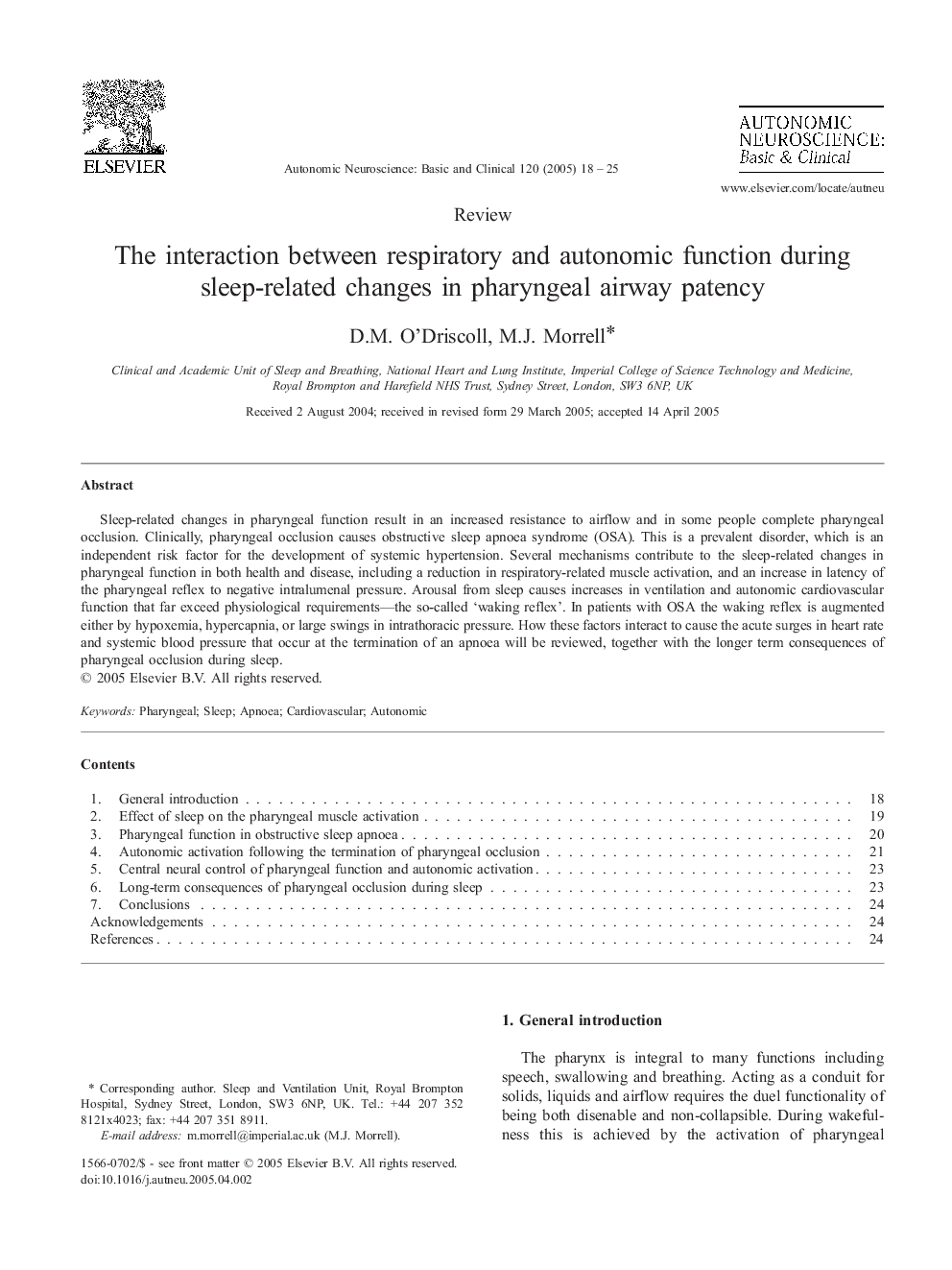| Article ID | Journal | Published Year | Pages | File Type |
|---|---|---|---|---|
| 9186464 | Autonomic Neuroscience | 2005 | 8 Pages |
Abstract
Sleep-related changes in pharyngeal function result in an increased resistance to airflow and in some people complete pharyngeal occlusion. Clinically, pharyngeal occlusion causes obstructive sleep apnoea syndrome (OSA). This is a prevalent disorder, which is an independent risk factor for the development of systemic hypertension. Several mechanisms contribute to the sleep-related changes in pharyngeal function in both health and disease, including a reduction in respiratory-related muscle activation, and an increase in latency of the pharyngeal reflex to negative intralumenal pressure. Arousal from sleep causes increases in ventilation and autonomic cardiovascular function that far exceed physiological requirements-the so-called 'waking reflex'. In patients with OSA the waking reflex is augmented either by hypoxemia, hypercapnia, or large swings in intrathoracic pressure. How these factors interact to cause the acute surges in heart rate and systemic blood pressure that occur at the termination of an apnoea will be reviewed, together with the longer term consequences of pharyngeal occlusion during sleep.
Related Topics
Life Sciences
Neuroscience
Cellular and Molecular Neuroscience
Authors
D.M. O'Driscoll, M.J. Morrell,
